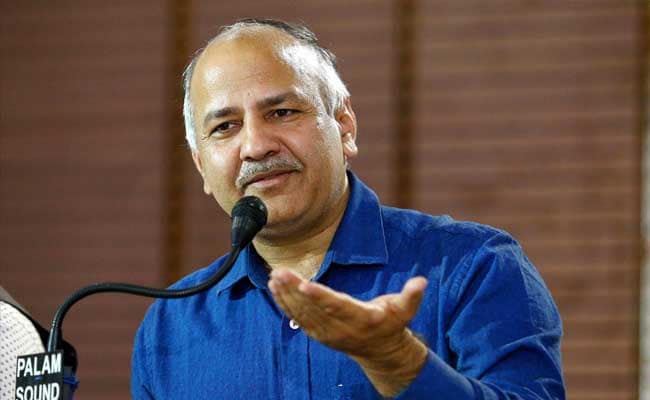
Delhi Deputy Chief Minister Manish Sisodia has written to Union Human Resource Development Minister Ramesh Pokharyal "Nishank" supporting the ministry in its initiative to plan the reopening of schools with reasonable guidelines.
According to an official statement on Saturday, Mr Sisodia in his letter said that as Chief Minister Arvind Kejriwal had pointed out that we need to learn to live with the coronavirus and added that reopening of schools with reasonable precautions is a step in the right direction.
This comes as the Union HRD Ministry is preparing elaborate guidelines to be followed by schools and universities when they reopen. Educational institutes have been closed since the lockdown was first imposed to prevent the spread of coronavirus.
"First of all we need to assure every child, irrespective of age and social class that they are important to us and all of them have equal right to physical and intellectual space of their respective schools. The clamour of online teaching or older children coming to school first and not the younger ones should be put to rest", Mr Sisodia said in the letter.
The Deputy Chief Minister said that online teaching can only complement the learning in school, not replace it.
"Since we need to learn to live with Corona now, it would be better if the already existing learning space, which is school, take up that role. But before doing that, parents need to be taken in confidence and they should be explained about the risk factor with facts," he said.
In this regard, Mr Sisodia also quoted the Indian Council of Medical Research (ICMR) COVID study, which said that the attack rate (people affected per 1 lakh population) is lowest among 0-9 years age group.
Mr Sisodia suggested that a distinct approach should be followed in the early childhood education and elementary grades segment like secondary and senior secondary.
For children in the age group 3-4 years which is nursery to Class 8, he recommended establishing the foundation of lifelong learning with a goal of learning to learn.
"Instead of continuing the remaining part of schooling with reduced syllabus let us move beyond the tendency to just complete the syllabus," Mr Sisodia said.
Instead, he said that fluency in reading with understanding and oral expression, writing different genre of texts, number sense, emotional resilience, internalization of healthy and hygienic practice, etc should be the key areas of engagement between children and their teachers.
For Secondary and Senior Secondary grades, he suggested that NCERT and CBSE should be asked to remove the stranglehold of syllabus and rote learning-oriented exam from the academic life of a child.
Mr Sisodia also said that the syllabus should be reduced by at least 30 percent across all grades and subjects and emphasis should be on depth in learning and understanding rather than spreading far and wide.
He also suggested that the CBSE should move away from one-time high stake exams of class 10 and 12 to a model of continuous evaluation, so that students can take online exams whenever they want.
"We cannot expect a fundamental change in education and examination unless our teachers are ready and prepared for it," Mr Sisodia said advocating for international level training for the teachers and added that they should be deeply aware of innovative practices across the world.
He also emphasized on research so that new techniques of teaching and learning can be understood and implemented at the school level and advocated for teacher training model of Singapore and advised that the approach of the International Baccalaureate (IB) board be referred for exam reforms.
Track Latest News Live on NDTV.com and get news updates from India and around the world

